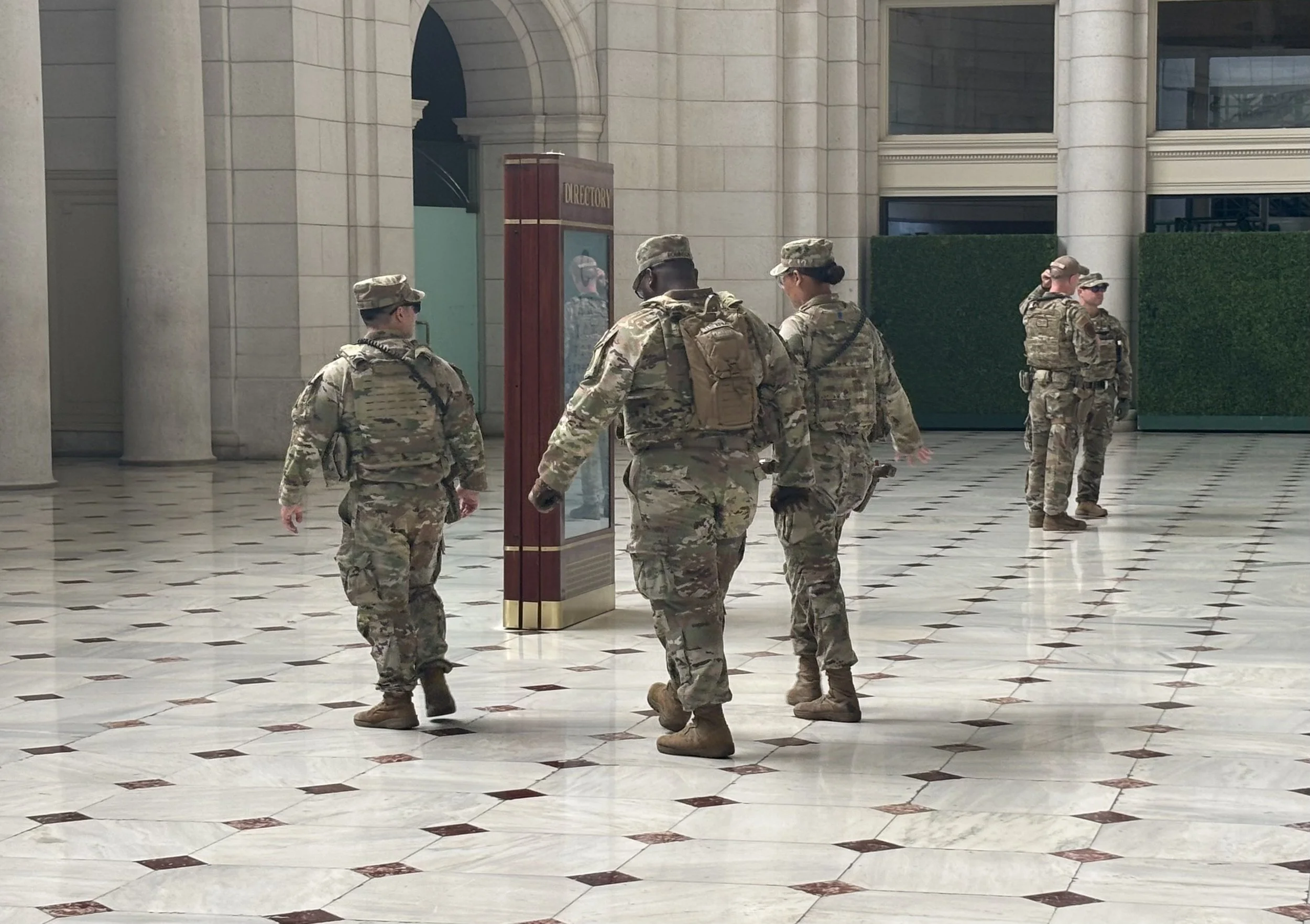Clergy Protest ICE and National Guard Presence Near DC Churches
(ANALYSIS) Churches have long stood as sanctuaries in both the spiritual and practical sense. They are places where the weary can find rest, the poor find refuge and the marginalized find community.
During times of political tension, however, even houses of worship can become entangled in controversy and even resistance.
In Washington, D.C., recent events have pushed some Christian leaders to become vocal against the Trump administration. As clergy argue that federal law enforcement agencies increasingly encroach upon church property and community spaces, the result has been a growing movement of men and women who argue that enough is enough.
READ: After First 100 Days, White Evangelicals Continue To Support Trump
The impetus for this movement has been an unsettling pattern that emerged over the summer: ICE vehicles began appearing in church parking lots. For congregations that serve immigrant populations, the implications were immediate and deeply troubling.
The Rev. Patricia Fears, one of the organizers of a letter protesting the practice, said she began hearing from several fellow pastors about ICE’s presence on church property.
“We’ve had to set up systems where we give out food other ways,” she said. “I don’t want to expose what we’re doing.”
Fears, the lead pastor of Fellowship Baptist Church, explained the fear brought about by these federal operations forced churches to rework essential programs like food pantries. As a result, attendance during services has dropped.
“Several children from Haiti stopped showing up to services at her Baptist congregation on Colorado Avenue Northwest,” Fears added.
Last month, Catholic churches that serve Spanish-speaking communities throughout the Archdiocese of Washington reported high levels of anxiety among congregants. Sacred Heart Shrine reported that six of its parishioners were detained by ICE agents, including an usher who was on his way to Mass.
An ICE press officer, in response to that arrest, told Catholic News Agency that, as of Jan. 20, Immigration and Customs Enforcement are “not subject to previous restrictions on immigration operations at sensitive locations, to include schools, churches and courthouses, [the agency] does not indiscriminately take enforcement actions at these locations.”
“U.S. Immigration and Customs Enforcement arrests aliens who commit crimes and other individuals who have violated our nation’s immigration laws,” the spokesperson added.
National Guardsmen patrol Washington, D.C.’s Union Station during a recent morning commute. (Photo by Clemente Lisi)
This federal surge included not only local police coordination, but also the presence of the National Guard, with Republican governors deploying troops to D.C. under the president’s order. The Trump administration cited a spike in crime as the justification for the increased law enforcement presence, although critics argued that overall crime had been down.
Two weeks ago, Trump said he would deploy National Guard troops to other cities — most notably Chicago, New Orleans and New York — if the governors of the surrounding states requested it.
A total of 1,599 arrests have been made in Washington, D.C. since the start of Trump’s crime crackdown, Attorney General Pam Bondi revealed on Sept. 2. During the same period of time, officials said 165 illegal guns had also been taken off the streets.
Regardless of the crime data in D.C., the reality of federal encroachment in and near churches was enough to prompt clergy to speak out. Trump supporters have said critics have chosen resistance over safety. Many clergy don’t see it this way.
Last Thursday, the District of Columbia sued to stop Trump's deployment. The city's attorney general, Brian Schwalb, said the hundreds of troops are essentially an “involuntary military occupation.” He argued in the federal lawsuit that the deployment is an illegal use of the military for domestic law enforcement.
This past Saturday, thousands showed up to protest the actions of the Trump administration, especially the recent federal surge of law enforcement.
But clergy were ahead of the lawmakers. Fears and 18 other Christian leaders signed a letter demanding that churches not be used as operational bases for ICE or other federal agencies. The letter was organized under the banner of the Fellowship of Reconciliation-USA-DMV, the local chapter of a longstanding interfaith group that focuses on justice and peace advocacy.
The Rev. Graylan Hagler, a senior advisor to the organization who also signed the letter, said pastors began raising concerns shortly after President Donald Trump announced last month his intention to increase federal oversight of D.C.’s Metropolitan Police Department and deploy federal troops to the city.
“I began hearing reports from fellow clergy about [it] as soon as President Donald Trump announced his plan, earlier this month, to add federal oversight to Metropolitan Police Department leadership and surge federal troops into the District,” Hagler said.
The impact of such tactics has been deeply felt in churches across the nation’s capital, especially in neighborhoods already grappling with high levels of poverty and crime. In Ward 7, one of the city’s most-challenged areas, churches like East Washington Heights Baptist have long been community anchors.
They, too, have experienced the ripple effects of this new federal posture. In a recent interview with NPR, the Rev. Kip Banks, the church’s pastor for more than 20 years, acknowledged that his congregation had not been immune to crime.
“For us, it’s really a matter of how you react to crime,” he said.
Banks cited Acts 2, saying there is “a difference between policing and military occupation” on the city’s streets.
“There’s a philosophy of how to deal with crime. It's a neighborhood philosophy where you get to know people,” he added. “You get to understand and what they're going through. And in particular, as a church, we subscribe to the beloved community, which is described in Acts 2, where all people have food to eat and all people have shelter, no matter what background, no matter what color. They all are loved. And this military occupation is hindering that. People don't feel safe.”
Clemente Lisi serves as executive editor at Religion Unplugged.

